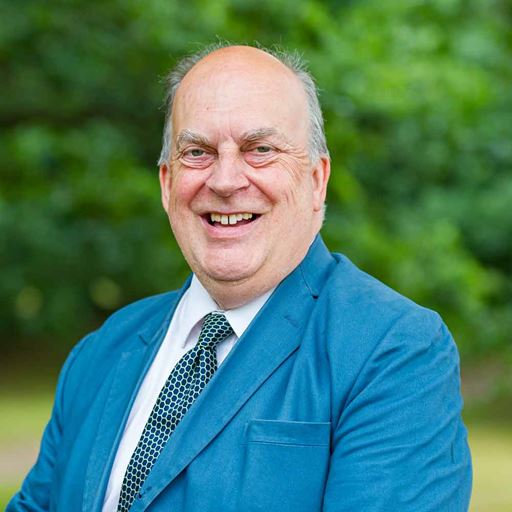Historian in focus: James Raven
-
Date
Mon 11 Nov 19

James Raven's research interests include the global history of the book.
James Raven is Emeritus Professor of Modern History. Over the years James worked at senior level for several international and national educational charities including the English-Speaking Union of the Commonwealth. Professor Raven, who has dedicated his academic career to studying the social and cultural history of books, is now a new Fellow of The British Academy.
What first made you interested in history?
I have often wondered what made me interested in history and I think the answer is that I grew up in a family that was fascinated by the past. It was a very large family, most of who worked on the land in north Essex and south Suffolk, and all of my parents and grandparents generation - there were many siblings - had left school at 14. They were fascinated and engaged with current affairs, argued about everything, and had an extraordinary memory of past generations.
One great uncle, for example, took me to the beach at Southwold and explained how an ancestor of his had fought the Dutch off the coast there in the late 17th century. I still have an extraordinary archive of family letters and ancient photographs and daguerreotypes and it was this I think that encouraged me to think about past lives, past experiences, and what they mean about our own lives.
Did you look up to anyone as a young person and did anyone particularly influence your studies?
Again, in terms of looking up to people it was very much those from within my family, whose lives as labourers in the beautiful countryside around Colchester were so extraordinary. It is why, for example, many years later I was pleased to become a trustee of the Marks Hall Estate and coordinated joint activities between the estate and the Department of History here.
My great great great grandfather William Raven was a gardener at the estate and I was fascinated by his history - he left the estate in 1841 to become the first policeman at a number of north Essex villages.
In terms of my studies, I had no idea what a university was or what university to go to and I relied on the advice and guidance - not so much I suppose about universities but about the study of history itself - from a wonderful school teacher, Michael Rouse, at the Gilberd School in Colchester. Like many of his generation he had served in the war and had an extraordinary hinterland of experience which he brought to his teaching.
Can you give us some more insight into the comparative study you are currently working on?
I'm currently working on a global history of the book - I'm fascinated in the interdisciplinary nature of books and ideas and the intersection between the study of material forms and the exchange of knowledge.
What would be your advice to young history undergraduates?
Make sure you are as interested in current affairs as your are in the exploration of the past and try to explore writings, ideas and conversations in languages other than your own. As an undergraduate all my friends were scientists of one kind or another - historians need to think about how other scholars think and what makes them do what they do.




